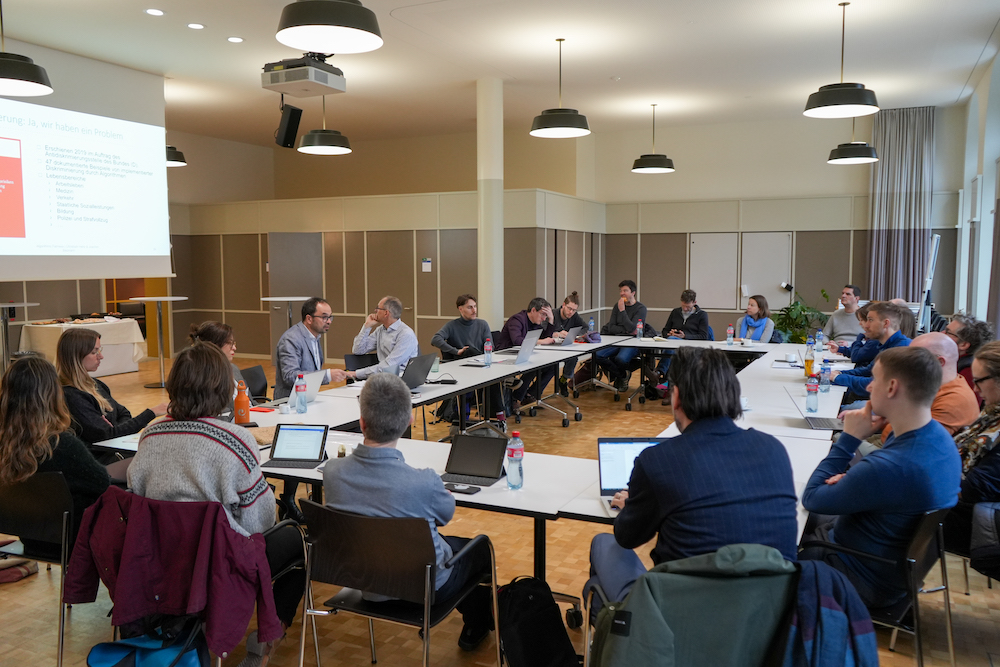Journalists attend DSI workshop on «Algorithms and AI»
In March 2023, the Digital Society Initiative (DSI) organized a workshop on «Algorithms and AI» for journalists specialized in digital topics. A total of 18 media professionals accepted the invitation and engaged in a lively exchange with research experts.

DSI Managing Director Markus Christen gave the journalists an insight into the work of the Digital Society Initiative and was able to show what Switzerland thinks about artificial intelligence (AI).
For the latter, he presented the current results of a representative study, which the DSI had conducted in collaboration with GFS Bern. The evaluation shows that around two-thirds of respondents are in favor of involving AI even in difficult decisions – for example, in the question of whether a therapy should be discontinued due to a patient's medical condition. In addition, Christen explained, «Decisive for the acceptance of AI, according to the study, is trust in the institution applying the AI. Less relevant for acceptance are, for example, one's own digital skills.»
Christoph Heitz of the Institute for Data Analysis and Process Design at the Zurich University of Applied Sciences (ZHAW) explained why even algorithms that act absolutely logically are not necessarily socially fair. Discrimination could result from unrepresentative data, for example, if only little data is available on minorities. However, algorithms are primarily unfair because they are optimized for their benefit. Nevetheless, Heitz stressed, «We can ensure that algorithms are fair. But fairness has to be explicitly required and technically built in.» What «fair» means, he said, depends on the context in each case.
In the third Deepdive, Claudia Witt, co-director of the DSI, presented the work of DSI Strategy Lab 2022, which has been dedicated for just under a year to the question: «Artificial intelligence in medicine – where do we want to go?» In workshops, through the inclusion of focus groups and by means of roundtable discussions, various scenarios have been developed for the near future (approximately ten years) and the distant future (approximately 25 years). These scenarios form the basis for recommendations that are currently being developed and will be communicated in 2023. One thing can already be stated, however: «Digital twins are likely to play an important role in medicine,» said Witt, venturing a glimpse into the future.
Stephanie Gygax from the Mercator Foundation Switzerland presented the «Verzeichnis der Digitalen Zivilgesellschaft Schweiz» to the journalists present: an index for independent voices and expertise on digititalization topics.
Finally, the last presentation of the workshop was dedicated to the role of the civil society. Angela Müller from AlgorithmWatch, a civil society advocacy organization, drew attention to critical impacts of AI on people and society with the help of examples from the fields of «public sector», «opinion formation», «workplace» and «sustainability». For example, AlgorithmWatch, together with the Digital Society, had launched an open letter against the planned facial recognition in Swiss train stations – with success.
The workshop was held twice – once each in German and French. At the event for journalists from the French-speaking part of Switzerland, Johan Rochel, Co-Founder of the ethix Innovation Ethics Lab, presented in place of Claudia Witt and Christoph Heitz. Both events were attended by a total of 18 media professionals from Switzerland, who very much welcomed the offer of such a workshop.